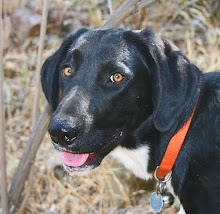"The men of mixed blood jabbered in French, Cree, and Chipewyan mainly, but when they wanted to swear, they felt the inadequacy of these mellifluous or lisping tongues, and fell back on virile Saxon, whose tang, projectivity, and vile epithet evidently supplied a long felt want in the Great Lone Land of the Dog and Canoe."
The Arctic Prairies, 1911, Ernest Thompson Seton
The need to use virile Saxon comes at a young age. We were highly amused when a friend's son, wrought with angst over a childhood vexation told his parents he wished he could swear. He made it quite clear that his limited English was simply unequal to the task of expressing his frustration. I always thought that Zachary might have already known of a few tangy words, and was discretely asking permission to use them.
My first awareness of virile Saxon came when I was in Kindergarten. My grandfather and father had a fascinating language of their own. They used special words whenever they worked together. I thought I was entitled to use "the man's language". I never knew my mother was capable of such swift and decisive movement until the morning I exclaimed, "You dumb bastard!" It was probably one of the rare instances of single trial learning in my youth.
Somewhere I heard that biologists, the earthiest variety of scientist-- are more prone to use expletives than say, physicists or geologists. Among biologists, they say zoologists use racier language than botanists.
I am not sure any of this is true, but I always assumed that Steinbeck sanitized his portrayal of Ed Ricketts as Doc in Cannery Row. If Ricketts was as "concupiscent as a rabbit" he must have seasoned his speech.
Now the flashbacks:
ca 1979: Yenching Palace (a Chinese restaurant), Connecticut Avenue, Washington DC
We are zoo staffers prepared to celebrate the kind of personnel change that makes you sing, "Ding dong the witch is dead". The management knows us and seats us on one side of the room among a few other diners. We order steamed dumplings and beer while our mentor, who opts for Wild Turkey begins his catharsis -- a one-man passion play of sweeping erudation, surreal outbursts, and brooding pathos -- richly seasoned with expletives. An hour passes before we order food. Three hours later we are burned out, and it's time to go. That's when we notice that all the other customers are dining at the farthest corner of the room.
And now the faux pas of learning a language.
August, 1965: a hut on the banks of Rio Coatzacoalcos, Veracruz, Mexico
I am learning vernacular Spanish from the natives (mainly a working guy named Ruben), and am much taken with slang words, like cabron (billy goat). We refer to each other as cabrones. I know it means more than billy goat, but I'm clueless to its nuanced and vile usage. Reno, and Dave and I are dining at the home of a humble family of campesinos, when Ruben announces that I have taught myself Spanish. This is a cue to perform. I do my little routine (all in present tense) and then lightly refer to Ruben as "un cabron". I am on a roll, and fail to notice the family's mortified body language. Ruben apologizes and explains that I don't know what I am saying.
"No, no, no, no no!" I insist. "Es verdad. Ruben esta un cabron muy grande."
When I realize how furiously Ruben is backpeddling, the damage has been done, and the rest of the meal is as solemn as a wake. I now know that cabron is not a word of mixed company.
1980s: an airport following the annual conference of the American Society of Mammalogists
Recognizing two gals from the meetings, I buy them coffee as we wait for our flights.They are grad students from Louisiana State University, with field experience in Brazil. "What about language problems?", I ask. They tell of a fellow student studying bats who approached a young woman at an airport to practice his Portuguese. (Yeah, right). The turning point was when he told her, "There's a fly in your hair." The lady politely replied he was mistaken, and the conversation quickly fizzled. Later he learned there are two words for hair: pele (fur) and cabelo (hair). The young man understandably used the word for fur and pelt -- pele. It was just bad luck. It also means pubic hair.
December 1, 1982: Delhi Airport, Security Check line (RNAC flight to Kathmandu)
I strike up a conversation with a couple of young Indian architects boarding the same flight. At the body frisking stop, one of them has an altercation with the security officer. "What happened?", I ask afterwards. "He is a silly old bum." He explains that the customs inspector was obviously from Haryana, so he addressed him in Haryani as "friend". The customs inspector correctly identified the architect from the Punjab, and assumed the architect was being a smart ass by using the Punjabi word that sounds the same. "What does that word mean?" I innocently ask. "It means the '(mammary) glands of a prostitute'!"
January, 1990. Casino Hotel, Trichur, Kerala
"Can you tell me what he's saying?" the redhead (my wife) asks with an embarrassed look. Our Keralite friend smiles and patiently repeats "How was the bed wetching?" (His accent is Malayalam, not the Hindi we hear mimicked so often.) I translate. "He wants to know, 'How was the bird watching?'" Later she tells me she thought he was asking, "How was the bed wetting" I admit it sounded a lot like that.
April, 1998. Chatthin Wildlife Sactuary, Burma
The premonsoon heat is terrible, and the redhead is not having fun. When the boyish Aung Moe delivers the cool drinks and notices her forlorn look, he timidly asks. "Scuse me, are you boring"?

No comments:
Post a Comment